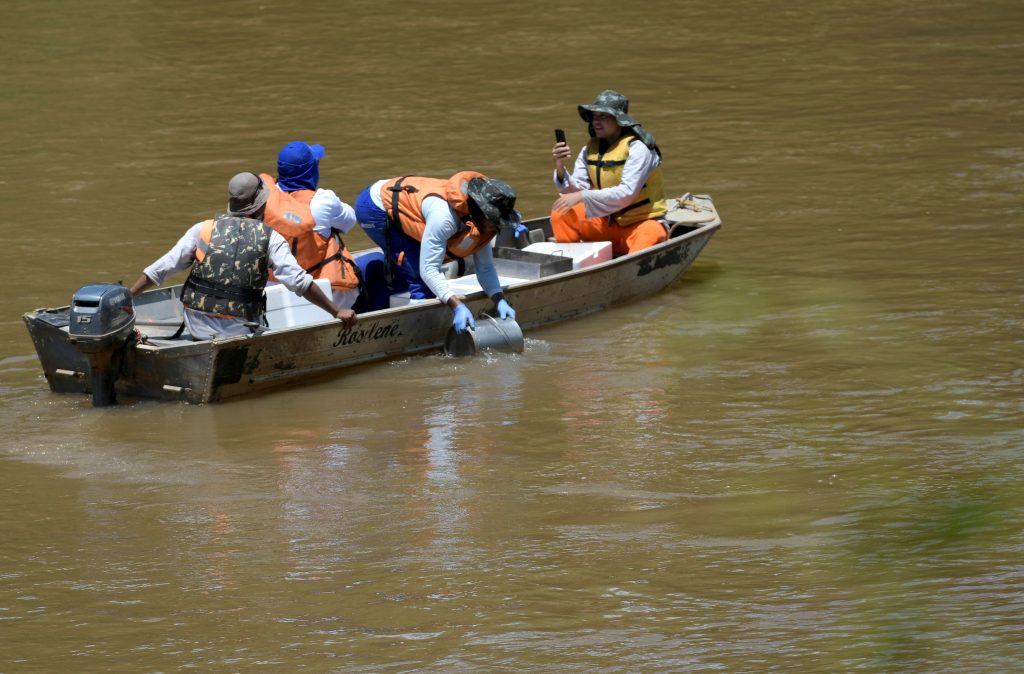More investment and action are needed to ensure people have access to clean and safe water for drinking and sanitation, said the Dicastery for Promoting Integral Human Development.
"The importance of hygienic measures had become even more evident throughout the world because of the COVID-19 pandemic. Without clean water and hygiene procedures, billions of people are placed at risk," the dicastery said in a written statement released March 21, ahead of World Water Day, celebrated March 22.
"It is necessary to ensure drinking water and sanitation for all," Pope Francis said March 21 after praying the Angelus.
World Water Day, the pope said, "invites us to reflect on the value of this wonderful and irreplaceable gift of God. For us believers, 'sister water' is not a commodity, it is a universal symbol and a source of life and health."
The same day the pope spoke, the Dicastery for Promoting Integral Human Development provided an update on its WASH project for promoting access to drinking water, sanitation and hygiene in health care facilities belonging to the Catholic Church.
The project was developed by the dicastery together with Caritas Internationalis, bishops, religious congregations and Global Water 2020, and it was launched in August 2020 together with the dicastery's publication, "Aqua fons vitae."
In a letter last year, the dicastery urged bishops to get involved in the WASH project to help Catholic health care facilities in need, so they could "safely treat patients, prevent further spread of COVID-19 and other diseases and protect health care workers and chaplains."
In particular, the project seeks urgent responses to those facilities serving "in isolated or impoverished areas of some dioceses," it said.
María Lía Zervino, president of the World Union of Catholic Women's Organizations, said members of the organizations work at the grassroots level caring for vulnerable people, and they are seeing "the dire need for safe drinking water, which was already lacking even before the pandemic in areas of high social risk."
"Without investment to ensure that the human right to safe drinking water is also available to the most needy, all efforts to educate about health care will be in vain," Zervino said.
Aloysius John, secretary general of Caritas Internationalis, said that local Caritas organizations are running similar programs in parishes, communities, health centers and schools, and the initiatives also "will help prevent the spread of new diseases and ensure decent care for patients."
The dicastery's March statement said several bishops' conferences, dioceses, congregations and Caritas agencies responded to the invitation to help WASH.
Among those "on the forefront of this commitment" are the Hospitaller Brothers of St. John of God with its network of 400 social and health care centers located in 52 countries, it added.
The dicastery is now drawing up a detailed assessment of approximately 150 Catholic health care facilities in 22 countries as well as calculating cost estimates "to understand what has to be done and how much it would cost to sustainably improve WASH conditions and meet proper standards through infrastructure, equipment, maintenance and staff training."
While the final report will be published later this year, "the preliminary results of these assessments reveal an urgent need in some areas," it said.
The dicastery again urged organizations and others interested in joining the initiative to contact them at [email protected] and said the WASH project was just one of a number of dicastery-coordinated initiatives aimed at caring for people and the planet, "and especially for a COVID-recovery in responsibility and solidarity with the most vulnerable."
Also marking World Water Day was Cardinal Pietro Parolin, Vatican Secretary of State, who sent a video message on behalf of Pope Francis to a United Nations' online event celebrating the day.
"I invite everyone to work to end the pollution of oceans and rivers, underground sources and springs, through educational efforts that promote a change in our lifestyles," the cardinal said in the message.
Making a commitment to using resources with moderation and making solidarity a primary concern, he added, "we will use water rationally, without needlessly wasting it and we will be able to share it with those who need it most."

